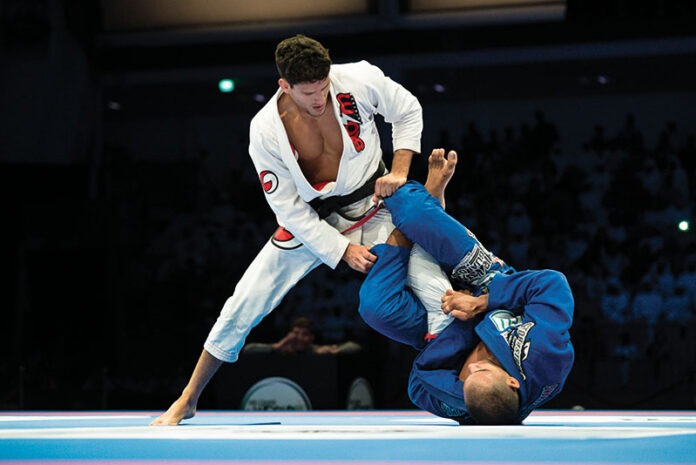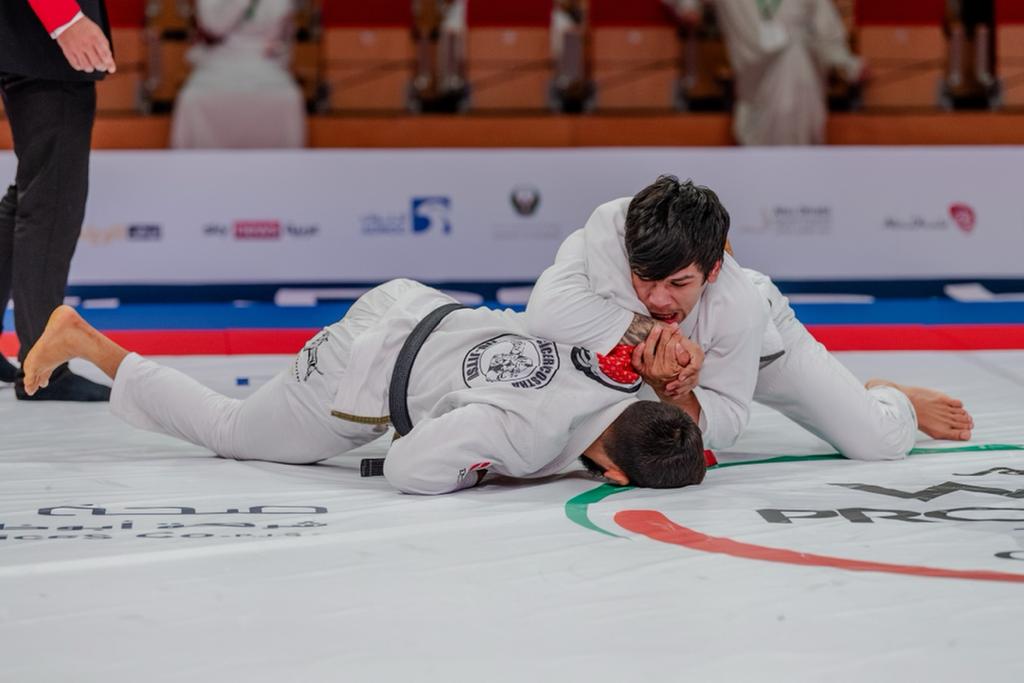
How bad do you want to be a pro Jiu-Jitsu fighter? For some, it is a dream, for others, it seems like something they could not even think about. Well, the truth is that while the circumstances might be different, there are a few things that are constant in regard to professional Jiu-Jitsu. In other words, anyone can give grappling as a profession a go. The question, however, and one that requires a very honest answer, is whether you are ready to do what it takes to make it as a pro grappler?
The professional Jiu-JItsu circuit has really taken off during the last few years. However, for a professional scene to grown, you need actual professional athletes that provide it with the potential for it. Remember when Metamoris pioneered pro Jiu-Jitsu? They had to rely on big-name competitors from the open tournament circuits, ADCC top performers, or MMA stars – there were no pro grapplers to speak of. I mean, they had to do rematches between the likes of Royler and Bravo (not that it was a bad match) in order to put on a show. Fast forward ten years and the landscape has changed significantly.
Professional Jiu-Jitsu – Grappling For A Living
The first thing to know about being a professional Jiu-Jitsu athlete is that it is not much different from being a professional athlete in any other sport. The one thing that is a big and very notable difference is that even the highest-paid grapplers in the world make peanuts compared to professional athletes from other sports. Well, that and getting recognized – outside of grappling and fighting, not many people will know who you are.
If you truly want to be a professional Jiu-Jitsu athlete nowadays, the opportunities are out there. Compared to just a few years ago, (the pandemic notwithstanding) there are more and more options opening up every month. However, the process of switching from a recreational, even if you are an avid competitor, to a pro, is the biggest leap and biggest hurdle that most people do not make it past.
In terms of grappling for a living, you can’t expect to pull it off as easy as UFC, boxing, or football players. I already mentioned the money. Well, even if you compare it to MMA, you can’t just hope to go full pro with just three or four fights per year. Ass a grappler, you will need to compete constantly, which does translate to a lot of demand on your body and mind. And that is all before you even breakthrough.
The lifestyle of professional athletes is not all fun and games. Looking at just the moments when they’re having fun or relaxing is just a small fraction of their time. All the other moments that are not as well documented online are the actual requirements of having the right to say that you are a professional BJJ grappler for a living.
What Does It Take To Be A Pro Grappler?
What does it take to be a professional grappler? Take a look at everyone who has made it as the perfect example of what it takes to become a professional Jiu-Jitsu athlete. First, let’s define the term. A BJJ pro athlete is someone who uses competition at the highest possible level (within their rank) as the only focus of their day-to-day efforts. Teaching seminars, shooting instructional, teaching full time, or running an academy are not things that define a pro grappler.
To begin with, you need to make sure that you are training at the right spot. You can be a pro competitor even if you’re not a part of some of the biggest competition dens in the world. Training at the likes of Atos, AOJ, Renzo’s, Marcelo Gracia’s academy, and the likes will pretty much offer everything, from the right training approach to finding the right matches and platforms for you. If not, you will need the correct environment, coach, and training partners, as the three key components to turning to a BJJ pro.
Having a place to train and someone to organize your skill training is the absolute bare minimum for being a pro. In those terms, training a couple of times a day is also a must. It can’t all be just sparring, though. Drilling, rolling, positional sparring, scenarios, working on gameplan, all have a role to play. In addition, you absolutely have to cross-train in at least wrestling, preferably Judo and or Sambo as well.
Then, there’s the physical aspect to think of. Conditioning, strength, flexibility and recovery all have to be combined with skill training in order to put you in the perfect shape for competition performance. There’s also another nutrition part of the puzzle, given that BJJ is a weight-class-based sport, and almost everyone is looking to cut weight.
Another really huge skill you absolutely need to make it as a modern-day pro fighter is the ability to get noticed – on social media. Without the correct exposure, short to f hiring a manager you’d be hard-pressed to actually make it past the local pro circuits.
The Questions Need To Answer If You Want To Be A Pro
There is a simple method that you should turn to when thinking about becoming a professional Jiu-Jitsu athlete. It is called a SWOT analysis (Strengths, Weaknesses, Opportunites, Threats) and it will give you a clear picture of what is ahead of you should you decide to continue with your pro grappler plans. On that note, this analysis is probably going to be slightly different for everyone.
Strengths. You are going to do what you love, and you get to travel a lot. Moreover, you get great exposure for your brand of Jiu-Jitsu, and academy of origin when you get to compete on the big stage. You will become better at BJJ regardless of results as well. Also, if you can manage your online exposure properly, you’ll pretty much have at least a few backup options.
Weaknesses. Competing for a living is not a forgiving profession. It takes a toll on your body, and you will need to accept that performances in competitive sports do not always go the way you plan. Getting enough exposure to start getting the invites to super fights and tournaments that matter is also a big concern. Of course, the initial investment to make it as a pro in the first few months/years has to be considered as well.
Opportunities. Travel a lot, expand your grappling knowledge, build a legacy… These are just a few of the opportunities that becoming a professional Jiu-Jitsu athlete will provide you with. There’s also the bigger picture of helping the entire sport grow, representing a country, club or whatever matters to you. And of course, there’s the chance of income, which can be significant or.
Threats. Injuries are the greatest threat to any athlete. IN the case of BJJ, this threat is at a whole different level, given the demands. Along with unforeseen situations like this current pandemic, injuries top the list of potential threats.
Closing Arguments
You can be a professional Jiu-Jitsu athlete. And yes, you can definitely make it as one. You have to be realistic though, with both your expectations and opportunities. Do your own SWOT analysis. Do in-depth research on the lives of pro grapplers. Contact as many of them as you can to ask for advice. If you still see the planets aligning, jump straight into it and do give it your absolute best. It won’t work with anything less.


![Darce Choke Encyclopedia – Origins, Mechanics and Variations [2024] BJJ, choke, Brabo, BJJ Darce Choke, D'arce Choke, Darce BJJ Choke](https://bjj-world.com/wp-content/uploads/2017/11/JungPoirierLeeYahoo-218x150.jpg)











![Front Headlock and Turtle Escapes Brian Glick DVD Review [2024] Front Headlock and Turtle Escapes Brian Glick DVD Review](https://bjj-world.com/wp-content/uploads/2024/11/headlock-and-turtle-escapes-brian-glick-dvd-review-218x150.png)
![Basic Closed Guard Jasmine Rocha DVD Review [2024] Basic Closed Guard Jasmine Rocha DVD Review](https://bjj-world.com/wp-content/uploads/2024/11/basic-closed-guard-jasmine-rocha-dvd-review-218x150.png)
![Don’t Stand Up Chris Wojcik DVD Review [2024] Don't Stand Up Chris Wojcik DVD Review](https://bjj-world.com/wp-content/uploads/2024/11/dont-stand-up-chris-wojcik-dvd-review-218x150.png)
![EMU Guard 2.0 Benjamin Power DVD Review [2024] EMU Guard 2.0 Benjamin Power DVD Review](https://bjj-world.com/wp-content/uploads/2024/11/emu-guard-2-0-benjamin-power-dvd-review-218x150.png)
![The Whole Omoplata Enchilada Lyanne Perez DVD Review [2024] The Whole Omoplata Enchilada Lyanne Perez DVD Review](https://bjj-world.com/wp-content/uploads/2024/11/whole-omoplata-enchilada-lyanne-perez-dvd-review-218x150.png)
![No-Gi Defense Xande Ribeiro DVD Review [2024] No-Gi Defense Xande Ribeiro DVD Review](https://bjj-world.com/wp-content/uploads/2024/11/no-gi-defense-xande-ribeiro-dvd-review-218x150.png)
![Two Sides One Game Sweep and Pass Marcos Tinoco DVD Review [2024] Two Sides One Game Sweep and Pass Marcos Tinoco DVD Review](https://bjj-world.com/wp-content/uploads/2024/11/sweep-and-pass-marcos-tinoco-dvd-review-324x235.png)

![No-Gi Defense Xande Ribeiro DVD Review [2024] No-Gi Defense Xande Ribeiro DVD Review](https://bjj-world.com/wp-content/uploads/2024/11/no-gi-defense-xande-ribeiro-dvd-review-100x70.png)
![Simplify the System Side Scissor Brian Glick DVD Review [2024] Simplify the System Side Scissor Brian Glick DVD Review](https://bjj-world.com/wp-content/uploads/2024/09/side-scissor-brian-glick-dvd-review-2024-100x70.png)

![Mastering Takedown Prevention Steve Mocco DVD Review [2024] Mastering Takedown Prevention Steve Mocco DVD Review](https://bjj-world.com/wp-content/uploads/2024/11/mastering-takedown-prevention-steve-mocco-dvd-review-100x70.png)

![Neil Melanson DVD Bundle Review: Filthy Brutal No Good Attacks [2024] Neil Melanson DVD Bundle Review: Filthy Brutal No Good Attacks](https://bjj-world.com/wp-content/uploads/2024/10/neil-melanson-dvd-bundle-review-filthy-attacks-100x70.png)

![Basic Closed Guard Jasmine Rocha DVD Review [2024] Basic Closed Guard Jasmine Rocha DVD Review](https://bjj-world.com/wp-content/uploads/2024/11/basic-closed-guard-jasmine-rocha-dvd-review-100x70.png)
![Crush The Guard Vagner Rocha DVD Review [2024] Crush The Guard Vagner Rocha DVD Review](https://bjj-world.com/wp-content/uploads/2024/10/crush-the-guard-vagner-rocha-dvd-review-100x70.png)




![Kill The Underhook Dima Murovanni DVD Review [2024] Kill The Underhook Dima Murovanni DVD Review](https://bjj-world.com/wp-content/uploads/2024/10/kill-the-underhook-dima-murovanni-dvd-review-100x70.png)





![Just Pass Jay Rodriguez DVD Review [2024] Just Pass Jay Rodriguez DVD Review](https://bjj-world.com/wp-content/uploads/2024/11/just-pass-jay-rodriguez-dvd-review-100x70.png)

![Trip Throw Dilemma Michael Pixley and Heath Pedigo DVD Review [2024] Trip Throw Dilemma Michael Pixley and Heath Pedigo DVD Review](https://bjj-world.com/wp-content/uploads/2024/10/trip-throw-dilemma-michael-pixley-dvd-review-100x70.png)

![Daisy Fresh WHITE BELT Wrestling Curriculum DVD Review [2024] Daisy Fresh WHITE BELT Wrestling Curriculum DVD Review](https://bjj-world.com/wp-content/uploads/2024/10/daisy-fresh-white-belt-wrestling-curriculum-review-100x70.png)
![BJJ Foundations Mikey Musumeci DVD Bundle Review [2024] BJJ Foundations Mikey Musumeci DVD Bundle Review](https://bjj-world.com/wp-content/uploads/2024/09/bjj-foundations-mikey-musumeci-dvd-bundle-review-100x70.png)

